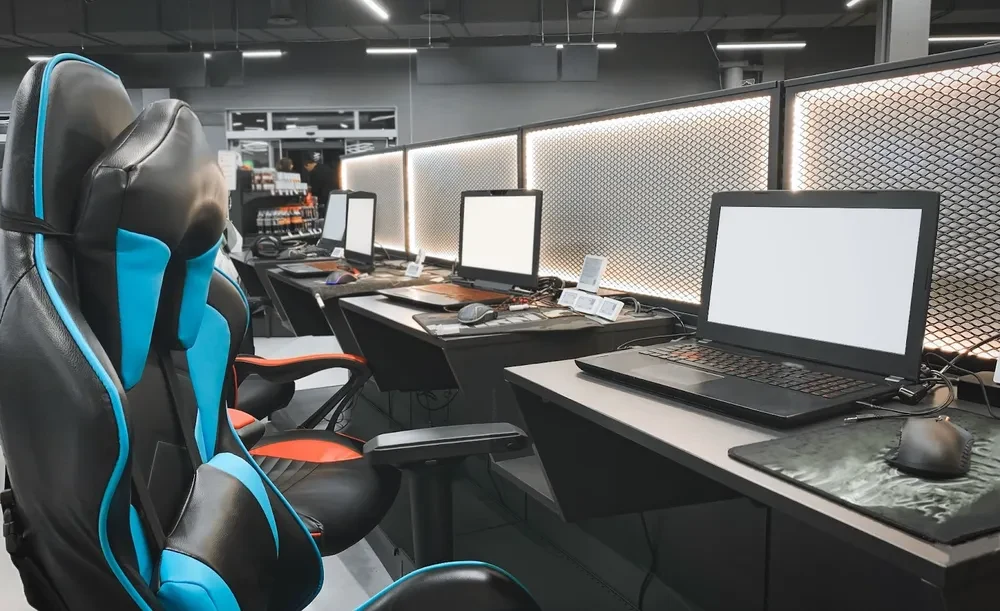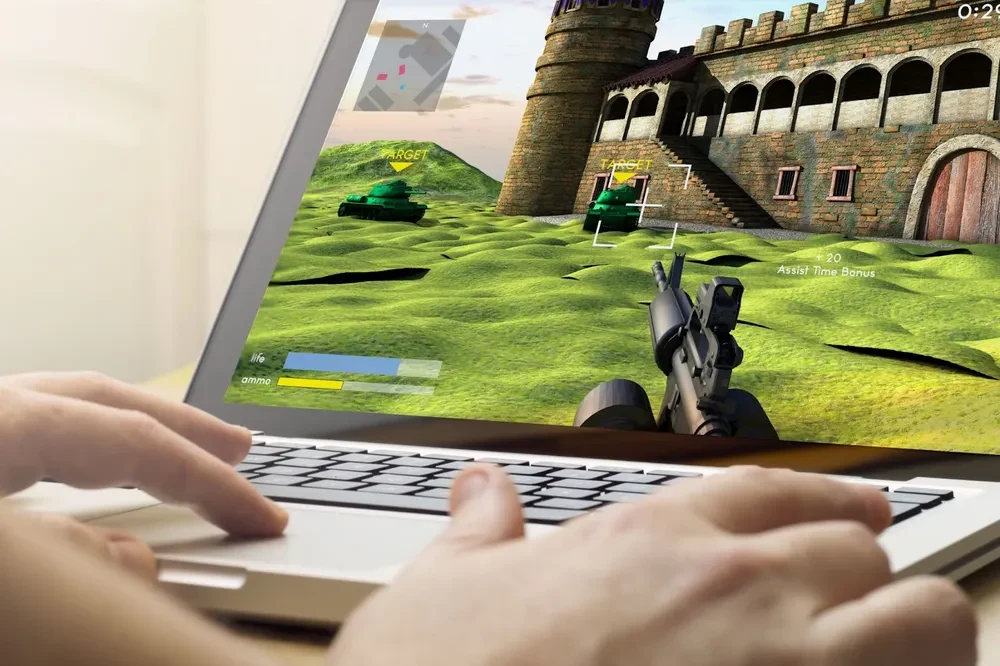The rise of mobile gaming has made portability a commodity in the gaming industry; there’s nothing better than being able to whip out your devices on an endlessly long road trip or airplane ride.
Nonetheless, the functionality offered by these small devices sometimes just doesn’t compare to the mighty beasts that are desktop PCs. Most of these can handle any large game you throw at them and allow you to harness more control over your virtual worlds through mice, keyboards, and larger monitors.
This dilemma of portability versus powerfulness is where gaming laptops come in; new-age spaceships that can handle the heaviest of games and software, all on the go. Whether you’re bedridden or on your home’s front porch, you can play any game you want, anywhere you want. Such versatility, however, comes at a cost.
To answer the question of why gaming laptops are so expensive, it’s worth noting that they must be small enough to fit in a briefcase and perform all the tasks a conventional desktop PC can do without sacrificing much of its performance levels. Nonetheless, there are various other factors at play that will be discussed in this article.
Why are gaming laptops so expensive right now?
As one of the most popular kinds of laptops on the market, gaming laptops are typically on the higher end when it comes to the overall performance of the machine, which means that their elevated costs boil down to four reasons in particular.

1. Manufacturing Process
The manufacturing process of these machines is one of the biggest reasons why gaming laptops are so expensive. Due to gamers wanting to tune up and customize specific parts of their laptops, manufacturers are forced to design their parts to be compatible with all other elements, resulting in more manual labor and longer assembly times.
The sheer sound of fitting all the components your average PC tower contains into one folder-sized laptop case sounds like a doozy; you’d think that the power supply and graphics card alone would take up all the space, making it truly a miracle that engineers can fit in the rest of the hundreds of components a laptop needs to replicate a desktop PC’s performance.
2. Overheating & Cooling Systems
The biggest issue facing standard laptops today is the ridiculous overheating generated by most games – your average MacBook Pro will end up sounding like a 747 jet after ten minutes of playing Fortnite. Considering laptop cases come in significantly smaller frames than your tower PC’s, airflow becomes restricted pretty easily and thus causes it to overheat.
This issue becomes exacerbated with gaming laptops when considering that these are designed to maximize the machine’s performance. Nonetheless, more and more models are being released which are fitted with intricate cooling systems designed to cool down the laptop’s GPU and CPU, and gamers often pay a premium not to end up frying their computer parts.
3. Higher Specifications
As gaming laptops are crafted with a gamer’s needs in mind, they are bound to have way higher specifications than your traditional laptops. When it comes to enhancing the gaming experience, manufacturers will go above and beyond to cram in the best in resolution, graphics cards, solid state drives, motherboards, etcetera.
Hence, it goes without saying that these added high-end components mark up the laptop’s price even further.
4. Longer Battery Life
Gaming laptops require far more power than standard laptops to perform, which makes them require more battery capacity for them to perform for longer durations of time; the last thing you’d want is for them to shut down in the middle of your League of Legends match.
Today’s manufacturers ensure that your laptop will last without needing it to charge, especially if you like to be on the move while gaming and don’t have easy access to a power outlet. There’s a reason why some gaming laptops’ charging blocks aren’t supported by some electrical outlets, as they require a significant amount of power to charge up again.

Is it worth it to have a gaming laptop?
The answer to this question depends on two crucial conditions:
- If you’re someone who likes to move around a lot and be able to play games wherever you please, absolutely. Portability is king for someone like you, meaning purchasing a gaming laptop becomes a no-brainer. You have the flexibility to game wherever you want and whenever you want.
- If you love gaming and also need a computer that can run heavy programs – whether for school or work-related purposes – you should seriously consider making this investment. Programs like those in the Adobe family, which can sometimes struggle on regular laptops, work seamlessly on gaming laptops thanks to the machines’ higher-end specifications and components.
Gaming laptops are much more affordable and accessible than building a PC from scratch, and their higher specs mean that they blow regular laptops out of the water in performance terms. They’re an excellent investment for casual gamers that also double as high-performance browsing computers.
Are gaming laptops better than standard laptops?
Again, the answer to this question depends on what you’re looking to get out of your computer and how much you’re willing to invest in one. A gaming laptop will hands-down give you the best experience when it comes to performance, but one slight gripe I have with some of these machines is their bulkiness – there are some chunky models on the market.
Standard laptops are often slimmer and weigh less than their gaming counterparts – due to them being manufactured with fewer, smaller components – as they’re not asked to perform all the tasks done by a traditional desktop PC. However, with relatively lightweight gaming models becoming more widely available, the higher performance becomes more and more worth investing in.

Do gaming laptops last long?
In a similar vein to traditional laptops, mid-tier gaming laptops will last you around 3 to 4 years, while higher-end models are looking at a lifespan of around 4 to 6 years. It goes without saying that a relationship exists between how much you’re willing to invest and the gaming laptop’s durability.
Wrap Up
While desktop PCs are arguably the more conventional solution for gamers, there’s something about gaming laptops we all love; being able to perform nearly all the same tasks while being on the move is a feature that cannot be matched by the former. This versatility, however, clearly comes at a more elevated cost.
If you’ve been wondering why gaming laptops are so expensive, we hope this guide will help you understand why and assist you in making the right buying decision.




